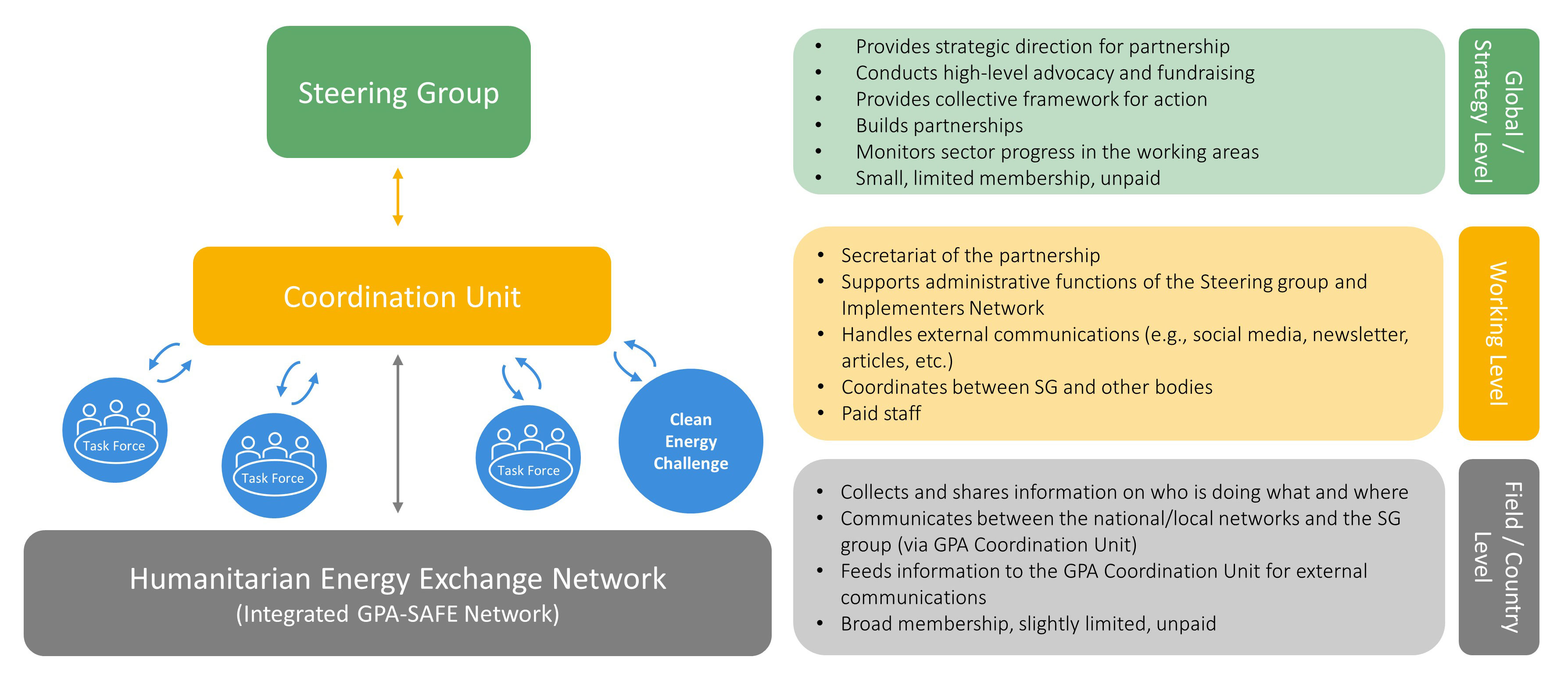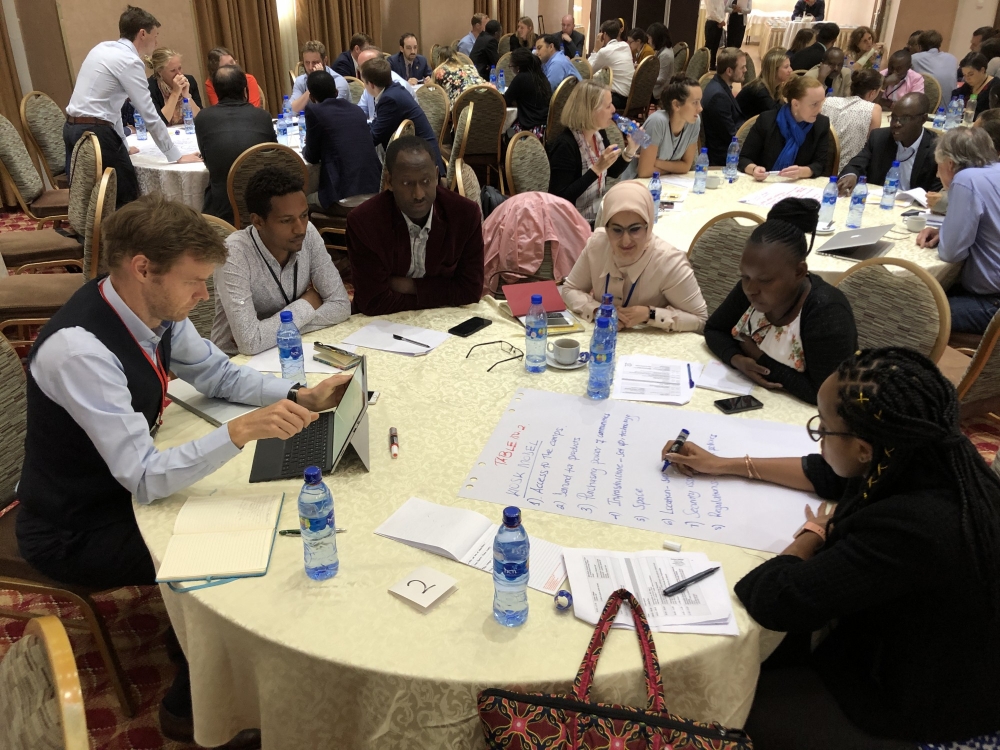In this section
In this sectionProgress in the scale and quality of energy programming for humanitarian response cuts across a range of thematic areas. The GPA is used as a platform to connect individuals and organisations around delivering collective activities. The GPA Coordination Unit and Steering Group members support the delivery of the recommendations in the GPA Framework document through advancing collective work in the following thematic working areas.

Global Support and Setting the Collective Agenda
The GPA Steering Group (SG) consists of UN Agencies, INGOs and other development partners with humanitarian-energy expertise and ambition to shape the global agenda. The role of the SG is to support, direct and stimulate systemic change on how energy is delivered in the humanitarian response. The main activities of SG are to align sector-wide strategy, track progress, identify gaps and opportunities for collective action, and support the management of the stakeholder network. The Steering Group membership is reviewed yearly, and key partners committed to the global action agenda are invited to be a member on a needs basis. The SG convenes once a month and members are expected to contribute to the meetings and develop the sector further. Identified in the diagram above as the Global Level.
Providing Advisory and Technical Support around Project Development and the GPA Objectives
This includes humanitarian/development partners, member states, companies and researchers working collectively on topic-specific and output focused activities (such as setting minimum energy standards, running global advocacy campaigns like the Clean Energy Challenge, or coordinating sector-wide e-waste efforts) and to develop joint projects and partnerships that contribute to the GPA Outcome Areas. The frequency of the meetings will be established by the Task Force lead or the CEC Action Group. Identified in the diagram above as the Advisory and Technical Support Level.
For Coordination and Knowledge Exchange
This includes individuals working in field/country operations on energy-related programming who provide local leadership, implement projects and humanitarian programmes, share knowledge and lessons learned. The Humanitarian Energy Exchange Network co-chairs will organise regular exchanges for field staff and provide support to the network via standard tools, best practices and advocacy support. Identified in the diagram above as the Country/Field Level.
Existing and new partners can engage in the above working spheres, based on their interests and mandate.
Through collective outputs in the aforementioned objectives, the partnership aims (individually and collectively) to support energy programming in emergency and protracted displacement situations along the following four outcome areas:
- Outcome Area 1: Enable increased and sustainable access to cleaner and more energy-efficient cooking solutions and fuels.
- Outcome Area 2: Enable increased and sustainable electricity access for households and businesses.
- Outcome Area 3: Enable increased use of energy efficient, renewable energy solutions for community services (water supply, schools, health centres, street lighting, etc).
- Outcome Area 4: Support decarbonizing of humanitarian facilities and operations (in line with UN SUN / SG Climate Framework and INGO Climate Change / Sustainability Programmes).
These intended outcomes are in line with Clean Energy Challenge (CEC), with the addition of Outcome 4 to support the decarbonisation of humanitarian agencies energy infrastructure, aligned with SDG 7 and UN Climate and Sustainability goals.
The GPA does not prescribe the use of any specific coordination mechanism; nor does it advocate for the arbitrary creation of coordination mechanisms for humanitarian energy programming where they are not needed. Any coordination and planning mechanism addressing the energy needs of displaced people should be appropriate for the specific context, make use of existing structures, and adhere to principles of efficacy and inclusiveness.
Last updated: 07/07/2023

